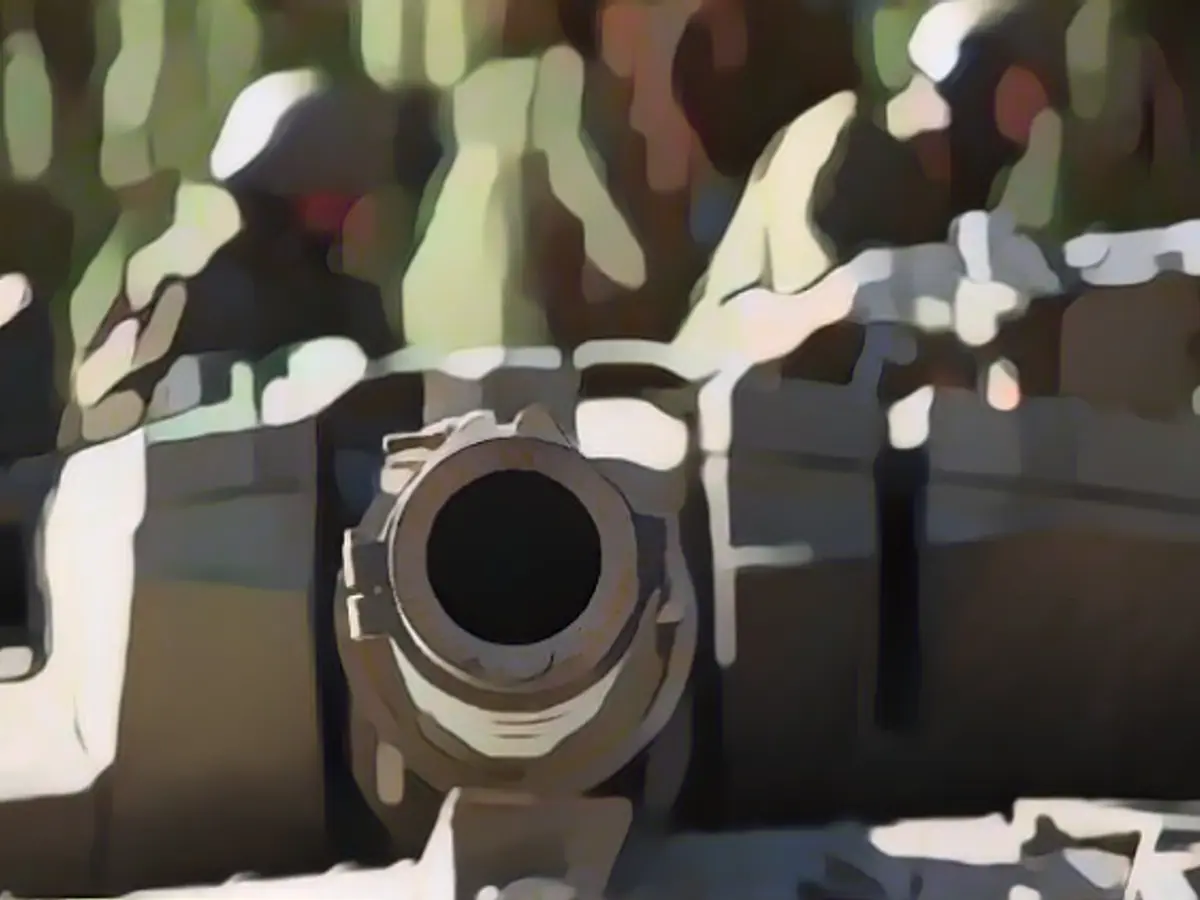How Israel must fight on three fronts
While Israel is attacking Hamas in Gaza, new battlefields are opening up: Hezbollah is firing rockets from Lebanon and the danger of the war spreading has not yet been averted. And then Israel is also fighting on the front line in cyberspace.
While the world focuses on the war in the Gaza Strip, another threat to Israel has been forgotten. Tehran, which has made the destruction of Israel part of its state doctrine, could open up a second front at any time via additional proxies.
"While people were still mourning in Israel, Hezbollah was firing rockets at the villages in the north," says Assaf Kedem, referring to the horror that befell Israel on October 7 with the Hamas massacres. Kedem runs a vineyard on the Golan Heights near the Lebanese border. "So far, it's still a small conflict. But the radical Islamic terrorist organization from Lebanon wants to prove to the Palestinians and Iranians that they are taking action against Israel."
The uncertain future is frightening
Some of his employees were called up for military service. Others had to be evacuated to the south due to the increasing tensions. Like many in his industry, the uncertain future scares Kedem. Across Israel, many wineries were in the middle of harvest when Hamas broke the ceasefire and invaded Israel. "Wine seems insignificant at the moment," he explains. "To create a new reality for our residents, Israel should tighten its deterrence balance against Hezbollah."
Meanwhile, fighting is taking place daily not far from the Israeli border with Lebanon. The IDF responds to Hezbollah rockets with heavy artillery and warns the militia against joining Hamas in Gaza and opening a second front.
"If Hezbollah sees weakness in our side, they will have an appetite," says Tamir Hayman, ex-commander of Israeli military intelligence. "That's why Israel is opposing them with all its determination and strength. Hezbollah is Iran's most important partner, but it is hard to imagine Tehran sacrificing its Shia militia for Sunni terrorists in Gaza." Like the Iranian regime, Hezbollah is Shiite, while Hamas is Sunni.
Nevertheless, the security expert warns of the danger of war due to misunderstandings, for example if an action could be misinterpreted by both sides. With its structure, firepower, units and missiles, Hezbollah operates on a completely different scale to Hamas. Other Iranian proxies in Yemen and Syria have already fired rocket salvos at Israel and there are even units ready in Iraq. "The IDF can also fight on three fronts," explains Hayman. The problem is not the military, "but the home front. The suffering and resilience of Israeli society."
The third front: the war for minds
Since its foundation, Israel has been exposed to threats from various directions. In the Middle East wars, it was attacked several times by numerous Arab armies acting in concert. However, armed conflicts are now not only fought and won on the battlefield, but also in the media. Conflicting parties use television and the internet to win the war for hearts and minds, i.e. for the opinion of the global public. Truth and fiction are often mixed up in the process.
"There is pure chaos on the internet," summarizes Josef Dar, co-founder of the internet monitoring company Cyabra. "Since October 7, we have examined millions of posts and comments about the war posted by countless accounts on various social media." Thousands of these were created more than a year before the attack. "You can mainly see the involvement of fictitious users who propagate anti-Semitic and pro-Palestinian narratives."
The media expert estimates that this targeted disinformation reaches over half a billion accounts. Platform users even share images from previous conflicts, video games or images created using artificial intelligence, which they post as authentic reports on the conflict.
Not only terrorist organizations are said to be behind the cyber war, but also Iran. "They are spreading Hamas horror videos to influence opinion, but also to undermine deterrence," says Dar. "They want to spread more conspiracy theories - like about the traitor from within who supported Hamas." Their aim is to create division in the nation and weaken morale.
Vintner Assaf Kedem perceives a "mood of mourning" in Israel. "Families are staying at home and watching the news. Most restaurants remain closed, as do the tasting rooms of many wineries." Although he and his team would be evacuated if a second front opened, he hopes to raise a glass to this vintage with his people at some point. "In these times, making wine feels insignificant," says Kedem. "But it's our responsibility to keep making it and bring a bit of culture, joy and light into the world."
In the midst of the ongoing conflict between Israel and Hamas, the potential for Hezbollah to open a second front from Lebanon remains a concern. Cyberwarfare is also a significant front for Israel, with Iran potentially leveraging proxies to launch attacks.
As the situation in Lebanon escalates, Israel is strengthening its deterrence against Hezbollah. Meanwhile, the cyberwar front is heated, with Iran spreading disinformation and conspiracy theories, aiming to create division and weaken morale within Israel.
Source: www.ntv.de








